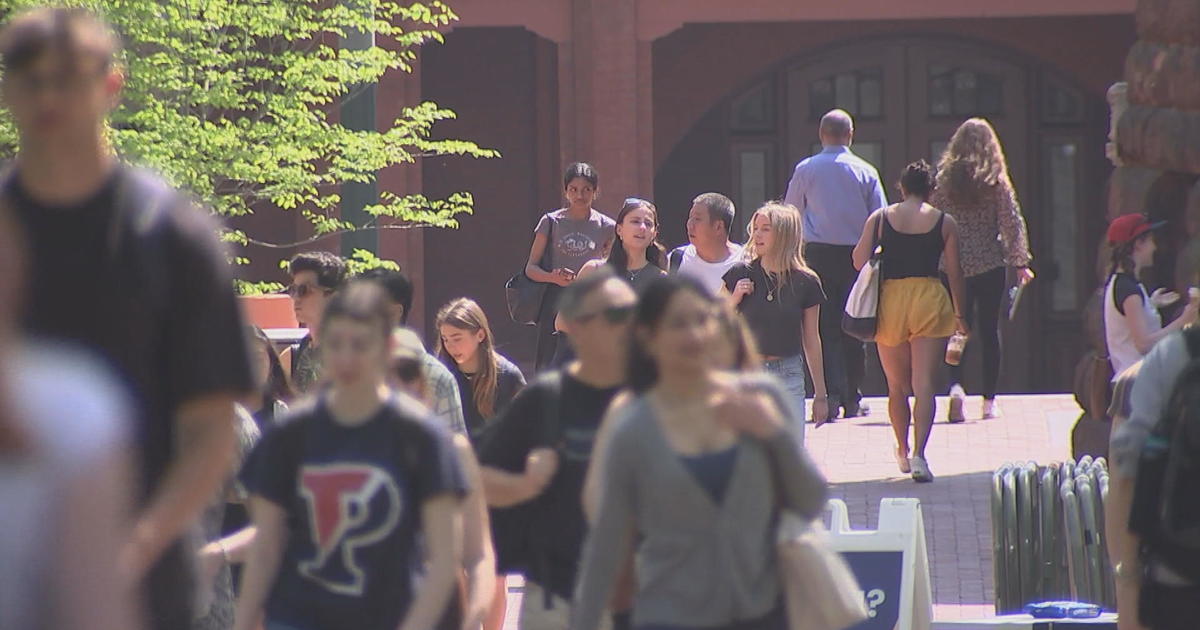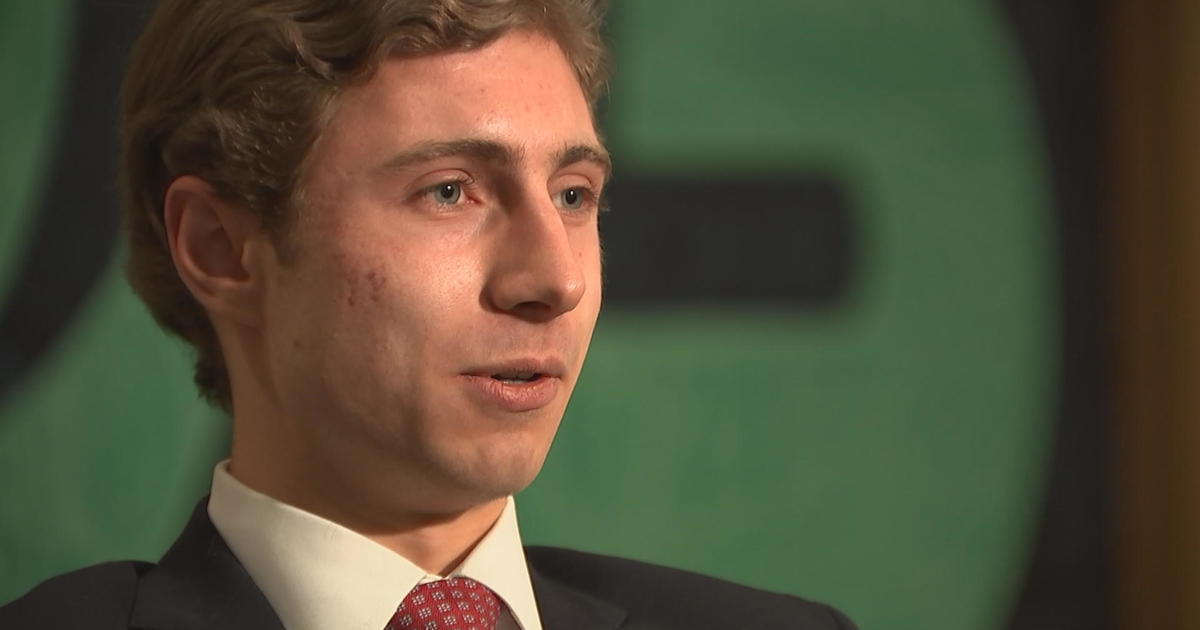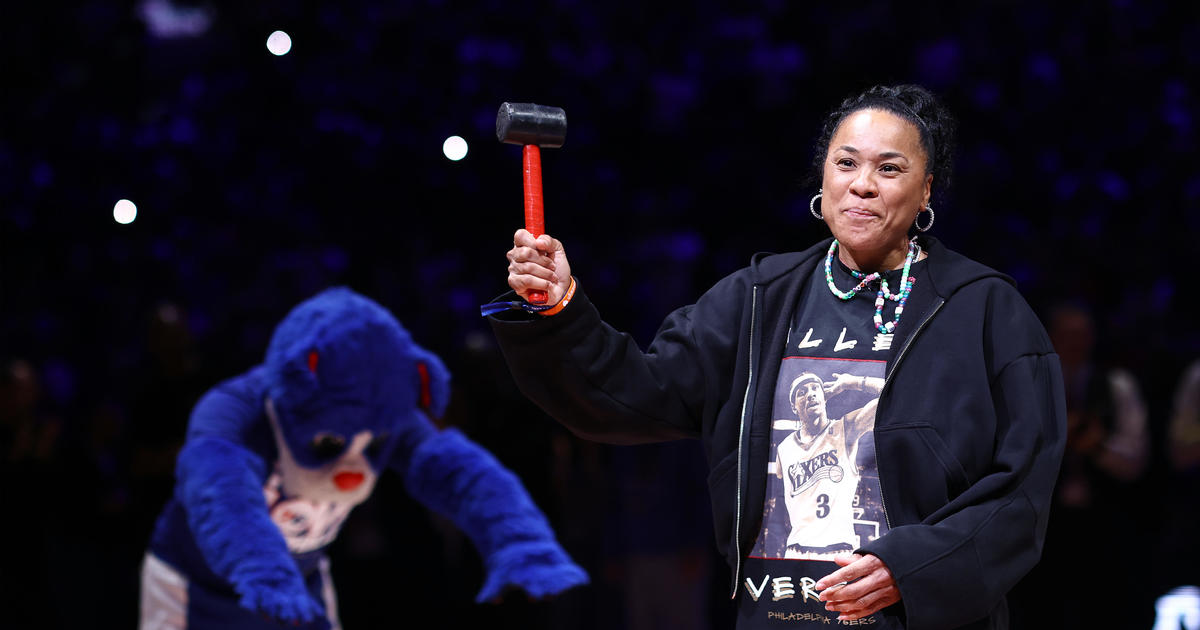Penn student says his "heart dropped" after Magill's comments on antisemitism to Congress
PHILADELPHIA (CBS/CNN) — The effects of Congressional testimony by University of Pennsylvania President Liz Magill on campus antisemitism are still reverberating, with mounting calls for her to step down.
Those calls have come with protests on campus, strong words from Gov. Josh Shapiro and the Wharton Board of Advisors, and threats from donors to withdraw or stop contributing millions of dollars in donations.
Magill, Harvard University President Claudine Gay and MIT President Sally Kornbluth testified before a House committee Tuesday about campus antisemitism.
When New York Republican Rep. Elise Stefanik asked Magill whether calling for the genocide of Jews would violate Penn's code of conduct, Magill answered "It is a context-dependent decision."
It sparked new calls for her resignation, including from Pennsylvania Gov. Josh Shapiro. However despite its name, the University of Pennsylvania is a private school, not a state-funded school.
In a short video released Wednesday night, Magill said the university would immediately review and clarify its policies on hate speech.
"I was not focused on – but I should have been – the irrefutable fact that a call for genocide of Jewish people is a call for some of the most terrible violence human beings can perpetrate. It's evil. Plain, and simple," Magill said in a video posted on X. "I want to be clear: A call for genocide of Jewish people … would be harassment or intimidation."
Magill noted antisemitic speech is designed to threaten and terrify Jews and remind them of the Holocaust, pogroms and other recent acts of violence against them.
"As president, I'm committed to a safe, secure and supportive environment so all members of our community can thrive," Magill added. "We can – and we will – get this right."
But so far, few of her critics believe she has gotten it right, and calls for her ouster have only gotten louder.
RELATED: Penn students react to President Liz Magill's comments on campus antisemitism
Magill appears to be the university president most imminently at risk of losing her job, because Penn's campus has been roiled by controversies about the conflicts in the Middle East for longer than other schools – and Magill's multiple unsuccessful attempts to satisfy critics have resulted in an uproar from donors and tumult on the school's board.
The University of Pennsylvania Board of Trustees met Thursday to consider her status. But a university spokesperson told CNN on the record that "there is no board plan for imminent leadership change."
The Daily Pennsylvanian, Penn's student-run newspaper, reported that another Board meeting is scheduled Sunday.
Penn students react
All of this is happening as students wrap up a turbulent end to the semester. As the fallout continues, some Penn students were disappointed or even disgusted with Magill's testimony and many joined calls for her resignation.
Freshman Dwight Koyner chose Penn for community, but as he studies for finals, that community is under attack.
"I think as a freshman it's tough. You don't have a baseline for what you should expect, so coming in to college, being an adult all of a sudden, you're basically being attacked. People don't like you. It's hard to understand. It's new and it's scary," Koyner said.
Abraham Franchetti, a sophomore, said his "heart dropped" after hearing Magill's testimony on Tuesday.
"I could not believe what I was hearing from Liz Magill and refusing to say that Jewish genocide constitutes harassment," he said. "It's been very difficult to be a Jewish student and seeing peers and university leaders turning their backs on us."
Friday, a group of House Democrats sent a letter to Penn's Board of Trustees, asking for more information about antisemitism on campus. Magill's office did not respond to requests for comment to CBS News Philadelphia as of Friday night.
For Koyner and others, they think it's time for a change of leadership and a shared understanding of humanity on campus.
"I would like if she would resign," Koyner said.
"What really needs to be achieved on this campus is a sense of humanity and empathy on both sides," freshman Leah Weinberger said.
An ongoing crisis at Penn
In September, weeks before the Oct. 7 Hamas attack on Israel, the University of Pennsylvania allowed speakers that Penn's administration acknowledged had a history of making antisemitic remarks to participate in the "Palestine Writes Literature Festival" on campus.
In response to the criticism of the university's decision to allow the controversial speakers, Magill and other top university administrators issued a statement that tried to satisfy both sides of the controversy but ended up angering both supporters of Israel and Palestinians.
"We unequivocally – and emphatically – condemn antisemitism as antithetical to our institutional values," said the statement. But it added that "as a university, we also fiercely support the free exchange of ideas as central to our educational mission. This includes the expression of views that are controversial and even those that are incompatible with our institutional values."
In response, 36 members of faculty at the school, before the festival was held, signed a letter criticizing that statement and Magill.
"It is equally important for us as educators to declare our support for Palestinian artists and writers, making it clear that we condemn antisemitism as well as Islamophobia and the oppression of Palestinians," said the letter. "We ask that as leaders of the Penn community, you immediately amend your statement so that it is clearly in support of a diversity of views and diversity of religious, racial, and cultural communities on campus."
Numerous donors also approached Magill and the school about the festival and Penn's tepid response. Weeks later, when Hamas attacked Israel and killed at least 1,200 people, that simmering resentment turned into a boil of anger.
After some high-profile and deep-pocketed donors announced they would end their support of the school if she remained, Magill soon after issued another statement that attempted to bring the sides together, but that did little to quiet the criticism.
"I categorically condemn hateful speech that denigrates others as contrary to our values," Magill said. "In this tragic moment, we must respect the pain of our classmates and colleagues and recognize that our speech and actions have the power to both harm and heal our community. We must choose healing, resisting those who would divide us and instead respect and care for one another."



